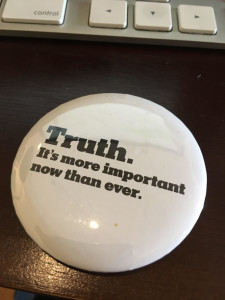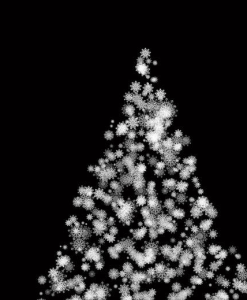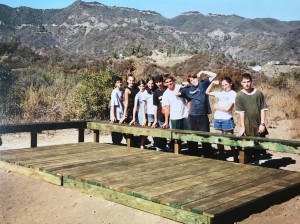The Lilith Blog
January 8, 2019 by Rebecca Sassouni
The Persian-Israeli Singer Who Makes Me Feel Whole
Growing up in the 1970s in Queens, New York, as the first-born daughter of Jewish immigrants from Iran, I was unable to articulate how I felt different from the other kids in my public elementary school: I could tell my teacher, Mrs. Rice, loved me, but I had never been called “bubbeleh” before. There were plenty of Jewish kids, but none whose families, like mine, ate rice during Passover. The other kids spent their time at sleepovers and sleepaway camps my parents would not allow me to attend. One afternoon, in 1979, after the Iranian Revolution, as a bunch of us walked from school to Hebrew school at the synagogue up the street, I felt the sting of my differentness, when a boy I had known for years turned to me angrily and hissed, “You, Iranian!”
The upheaval of that revolution scattered tens of thousands of Iranian Jews away from their country, most to the United States or Israel.
- 1 Comment
January 4, 2019 by admin
It’s Not Prom Queen. It’s President.
It is not about running for prom queen, it is about running for president,” political strategist Jess McIntosh recently had to say on CNN. Why? A Politico article published a couple days ago−just as the first woman presidential candidate of 2019 was announcing her exploratory committee−asking the question: but is she likeable?! The piece likened Elizabeth Warren’s potential “likeability” challenges as a woman seeking power in public to the one Hillary Clinton supposedly faced that allegedly caused her defeat.
(But, oops, and oh-by-the-way, Clinton wasn’t defeated. She won almost three million more votes than President Trump did. Tens of millions of American men and women liked her quite well enough.)
- No Comments
January 2, 2019 by Alice Sparberg Alexiou
Why Did the New York Times Run Alice Walker’s Unfiltered Antisemitism?
 On December 13, 2018, the New York Times Book Review, in its weekly column “By the Book,” published a Q&A with Alice Walker. The author and activist best known for her novel “The Color Purple” told the Times that she keeps on her night table a copy of And the Truth Shall Set You Free by one David Icke. His book, Walker said, is “a curious person’s dream come true.” While Walker’s reference may not have meant anything to most Book Review readers, Twitter users began to buzz about her unusual choice. Tablet magazine’s Yair Rosenberg wrote a long, damning story: Icke, we were reminded, is a British conspiracy theorist who believes that the world is controlled by alien reptilian creatures and—you guessed it—Jews. To back up his age-old canard, Icke quotes from—yes, really–The Protocols of the Elders of Zion. The story immediately blazed through social media. Other news outlets began picking up the story, and Times readers bombarded the paper with angry comments.
On December 13, 2018, the New York Times Book Review, in its weekly column “By the Book,” published a Q&A with Alice Walker. The author and activist best known for her novel “The Color Purple” told the Times that she keeps on her night table a copy of And the Truth Shall Set You Free by one David Icke. His book, Walker said, is “a curious person’s dream come true.” While Walker’s reference may not have meant anything to most Book Review readers, Twitter users began to buzz about her unusual choice. Tablet magazine’s Yair Rosenberg wrote a long, damning story: Icke, we were reminded, is a British conspiracy theorist who believes that the world is controlled by alien reptilian creatures and—you guessed it—Jews. To back up his age-old canard, Icke quotes from—yes, really–The Protocols of the Elders of Zion. The story immediately blazed through social media. Other news outlets began picking up the story, and Times readers bombarded the paper with angry comments.
- 6 Comments
December 26, 2018 by Noa Kattler Kupetz
A Filmmaker Listens to Germans, Jews and Palestinians
Like many born into the generation following the Holocaust, Ofra Bloch has always been fascinated with, and affected by, generational trauma–on both sides. Bloch set out to make a documentary focusing on descendants of former oppressors, focusing on the effects of the Holocaust on non-Jewish Germans. But what she ended up creating extends far past that initial subject. Instead, “Afterward” weaves together three emotional narratives: Germans after the Holocaust, Palestinians after the “Nakba” (the “catastrophe,” known by Israelis as the 1948 War of Independence) and Bloch’s personal story of growing up in Israel squeezed between inescapable shadows of WWII on one hand, and silence regarding Palestinians on the other.
As a child, Bloch dreamed of pursuing both psychology and filmmaking. Now, 30 years into her career as a psychoanalyst, “Afterward” is the meeting point of these dreams. “I have a lot of chutzpah, I take risks and I do things,” Bloch told Lilith. Throughout the six years it took to film and edit “Afterward,” Bloch continued to work full-time at her practice in New York. “I’m not a filmmaker, I’m a psychoanalyst, but I think both professions need the same skills,” she says. “You need to listen, which is like the camera looking at the subjects, and analyzing is like the editing process.”
- No Comments
December 20, 2018 by admin
An (Almost) Christmas Carol
Christmas was not an important day for me. As a Jewish child, growing up in a small  Connecticut town, I was certainly aware of the holiday and of its significance, but early on I knew that it was not my holiday and that my role in this season was that of onlooker. To say that I didn’t envy my friends’ excitement and anticipation every December, or that I didn’t wake up on Dec. 25 feeling somewhat empty and isolated would be untrue. But, like every other Jewish child from that era, I became something of a philosopher at an early age. That was theirs, not mine. It was a bit sad but not tragic. I would enjoy this holiday vicariously, admiring my friends’ trees and lights, and helping them play with their new toys.
Connecticut town, I was certainly aware of the holiday and of its significance, but early on I knew that it was not my holiday and that my role in this season was that of onlooker. To say that I didn’t envy my friends’ excitement and anticipation every December, or that I didn’t wake up on Dec. 25 feeling somewhat empty and isolated would be untrue. But, like every other Jewish child from that era, I became something of a philosopher at an early age. That was theirs, not mine. It was a bit sad but not tragic. I would enjoy this holiday vicariously, admiring my friends’ trees and lights, and helping them play with their new toys.
At the same time, Hanukkah was not widely celebrated. Where today many parents treat Hanukkah as a Jewish substitute for Christmas, in those days, in poor rural towns, it wasn’t directly compared to its Christian counterpart. It is a minor Jewish celebration, important in its affirmation of freedom of thought and religion, but not the occasion for massive gift-giving modern American parents have made it today.
- No Comments
December 19, 2018 by admin
A Teen Learns to Look Deeper at “Perfect Girls”
This article was originally published on Jewish Women, Amplified, the blog of the Jewish Women’s Archive, and was written as part of the Rising Voices Fellowship.
I have come across many girls in my life who seem to be blessed with every gift imaginable. They are kind and honest. They are beautiful and funny. They are somehow talented at anything they try their hand at and they are clever. They shine so bright, no one can hold a candle to them.
I know that these girls are just girls. I know they are struggling with a lot of the same stuff I struggle with, but even if their outer personalities are just façades, these people are the sorts of girls that society would deem “perfect.”
The one attribute I have consistently noticed in “perfect girls” is that they must be humble and quiet. Every “perfect girl” I have ever met has been so humble, that they turn a compliment into self-deprecation.
- No Comments
December 17, 2018 by admin
How High School English Class Turned Me Into a Feminist
This article was originally published on Jewish Women, Amplified, the blog of the Jewish Women’s Archive, and was written as part of the Rising Voices Fellowship.
The transition from eighth grade to freshman year is a rough one. Especially if you’re going from a small Jewish school to a large public school and especially if most of your friends are going to other schools and especially if you have the notoriously difficult English teacher™ (yes, you know the one).
Going into English class, I was scared out of my mind. I had no idea how to handle the level of work (both in terms of quality and quantity), and my teacher’s infamous reputation didn’t help calm my nerves in the slightest. My goal at the beginning of the year in English was to do my best, complete the work, and hopefully get good grades.
- No Comments
December 13, 2018 by Helene Meyers
7 Jewish Feminist Highlights of 2018
I don’t need to tell readers of Lilith that parts of this year have been soul-crushing for Jewish feminists. In 2018 we mourned those massacred at the Tree of Life synagogue in Pittsburgh, and many of us gnashed our teeth about antisemitism in our own feminist movements.
But Jewish feminist hope, grit, and creative resistance were also part of 2018. As the secular year winds down, let’s remember and celebrate all that has healed and nourished our souls. Here’s my annual list of 7 Jewish feminist highlights (7 being the number associated with creation and blessing in Jewish tradition):
- No Comments
December 10, 2018 by admin
My Jewish Summer Camp Was Destroyed in the Woolsey Fires—But We Vow to Rebuild
 Last month, I heard the news: Camp JCA Shalom, the summer camp I attended for many years as a child, was almost entirely destroyed in the Woolsey fire that ravaged parts of Los Angeles County.
Last month, I heard the news: Camp JCA Shalom, the summer camp I attended for many years as a child, was almost entirely destroyed in the Woolsey fire that ravaged parts of Los Angeles County.
And just a few weeks earlier, I woke up to several text messages offering me condolences, full of well wishes and broken heart emojis. I checked the news to discover that a man shouting “all Jews must die” had murdered eleven people and injured seven others during Shabbat services at a Pittsburgh synagogue.
- No Comments
December 4, 2018 by Aileen Jacobson
“Do You Know What Meshugge Means?”
She was meshugge,” Gladys, the strong-willed octogenarian played by Elaine May in “The Waverly Gallery,” says lightly about a relative. Then she leans over conspiratorially to her young-adult grandson Daniel, with whom she’s discussing family history, and asks, “Do you know what that word means?”
He tells her twice—louder the second time—that he does, but she hasn’t heard him. “It means kooky, you know: a little nutty,” Gladys explains in this gentle bit of humor that helps to signal that this is a play about a Jewish family.
- 1 Comment
 Please wait...
Please wait...